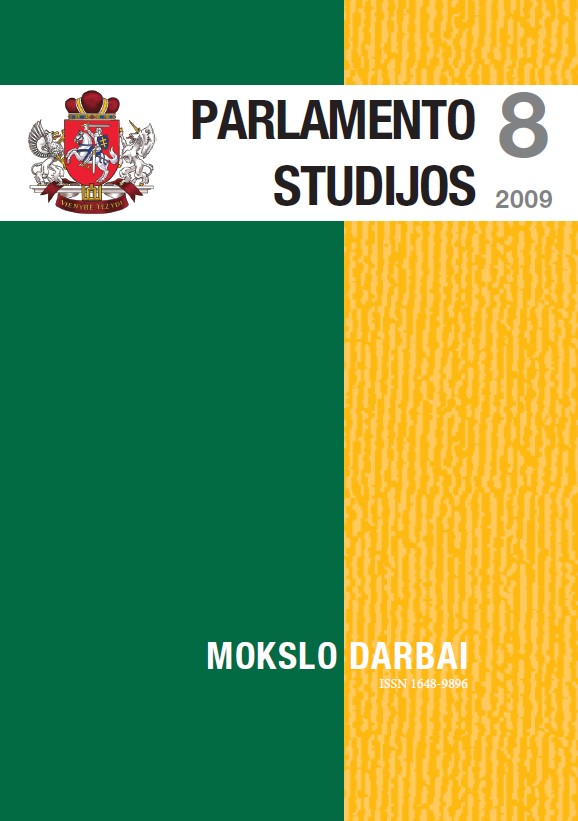Relations Between the Parliament and the Government: the Impact of EU Membership
DOI:
https://doi.org/10.51740/ps.vi8.335Keywords:
EU member, democracy, subsidiarity principle, national parliamentAbstract
This article analyses inter-institutional relations between legislative and executive powers and their possible changes in view of the EU integration. For several years already there has being an on-going discussion about the “democratic deficit” in the European Union, and one of possible ways of how to solve this problem was suggested as enhancing rights of national parliaments as it concerns EU matters. This question is also being raised in connection of Lisbon Treaty which presumes an active participation of national parliaments in decision-making process mainly through checking of subsidiarity principle.
However, as practice of some of the EU member countries proves, a key to making national parliaments more efficient players both at EU and domestic levels could be through strengthening of parliamentary scrutiny and more active dialogue of a national parliament with a government. This also provides for a more active participation of political actors in the process. When Lithuania became an EU member state the powers of European affairs and Foreign affairs committees were expanded providing a legal basis for a more active involvement of the Seimas in EU affairs. While during the eurointegration period Seimas was mainly preoccupied with legislative questions (because of transposition of acquis communautaire), recent years marked an increased volume of parliamentary scrutiny activity.
The institute of parliamentary oversight is being discussed in the framework of a delegation theory and a formal principal-agent model. The article also draws upon some insights provided by political scientists and constitutional law theorists about the legal framework and practice of Lithuanian case. It is to be expected that an effective use of the instrument/or - functioning of parliamentary oversight in the near future would depend on institutional grounds as well as on behaviour of political actors.








 The metadata of the scholarly journals and publications of the Lithuanian National Martynas Mažvydas Library is distributed by
The metadata of the scholarly journals and publications of the Lithuanian National Martynas Mažvydas Library is distributed by 